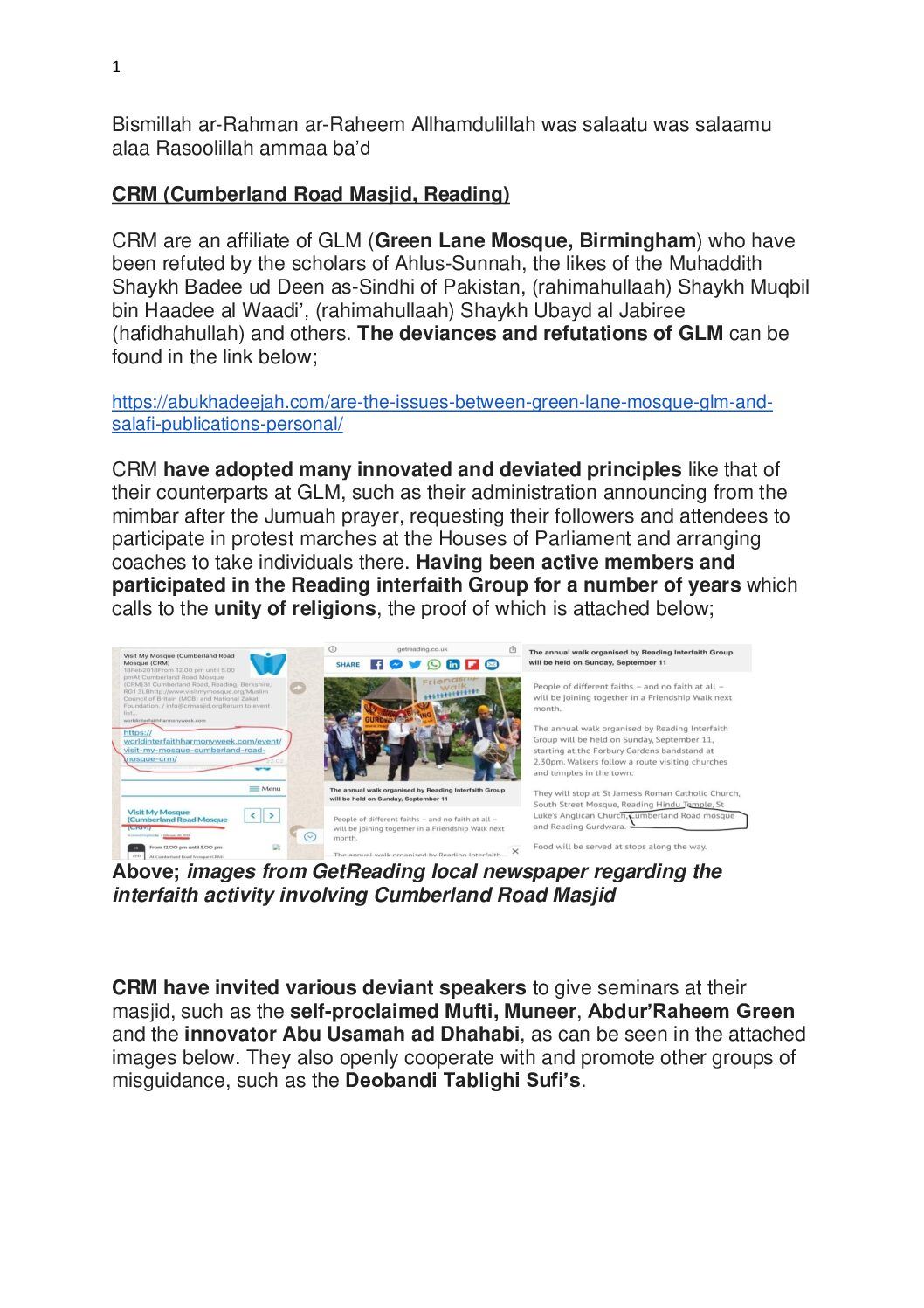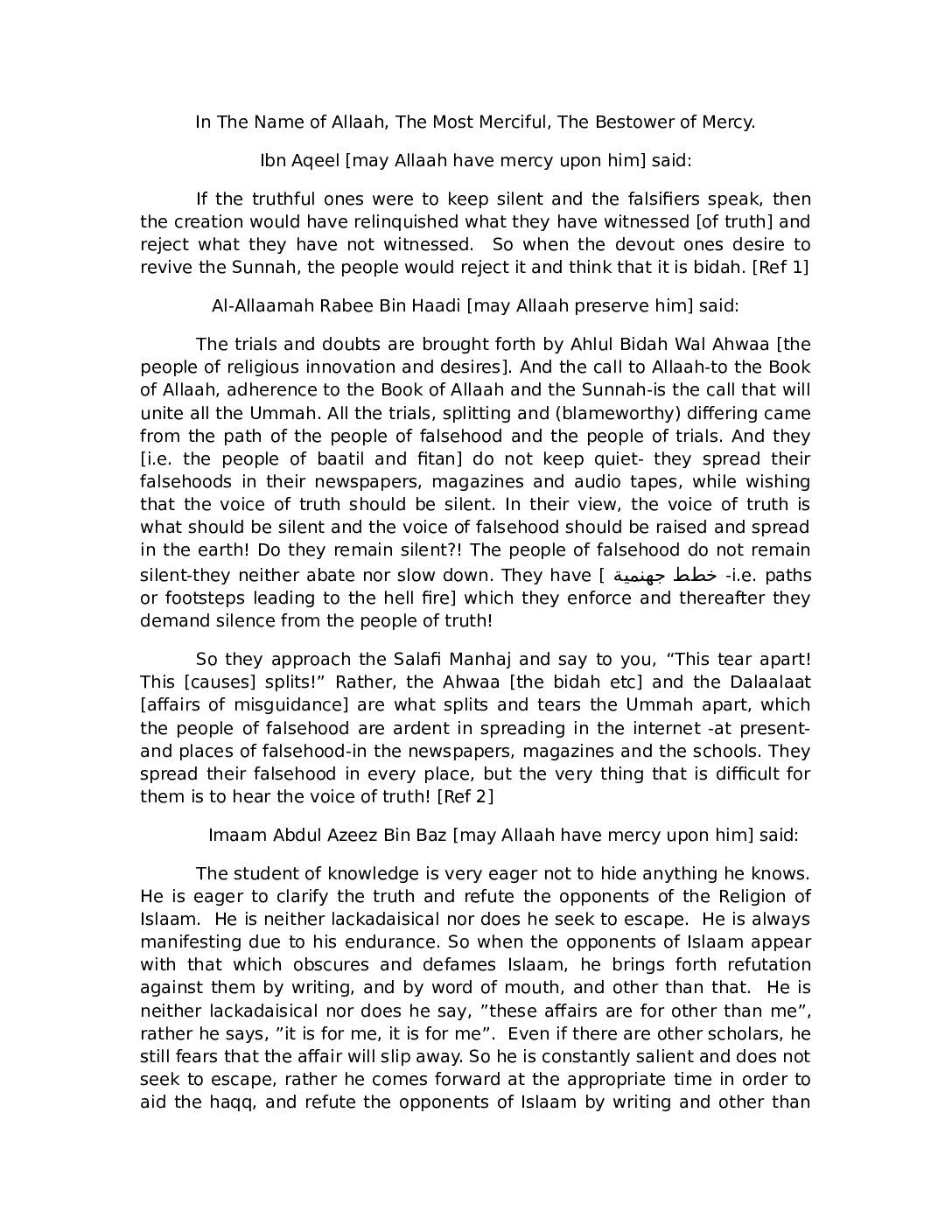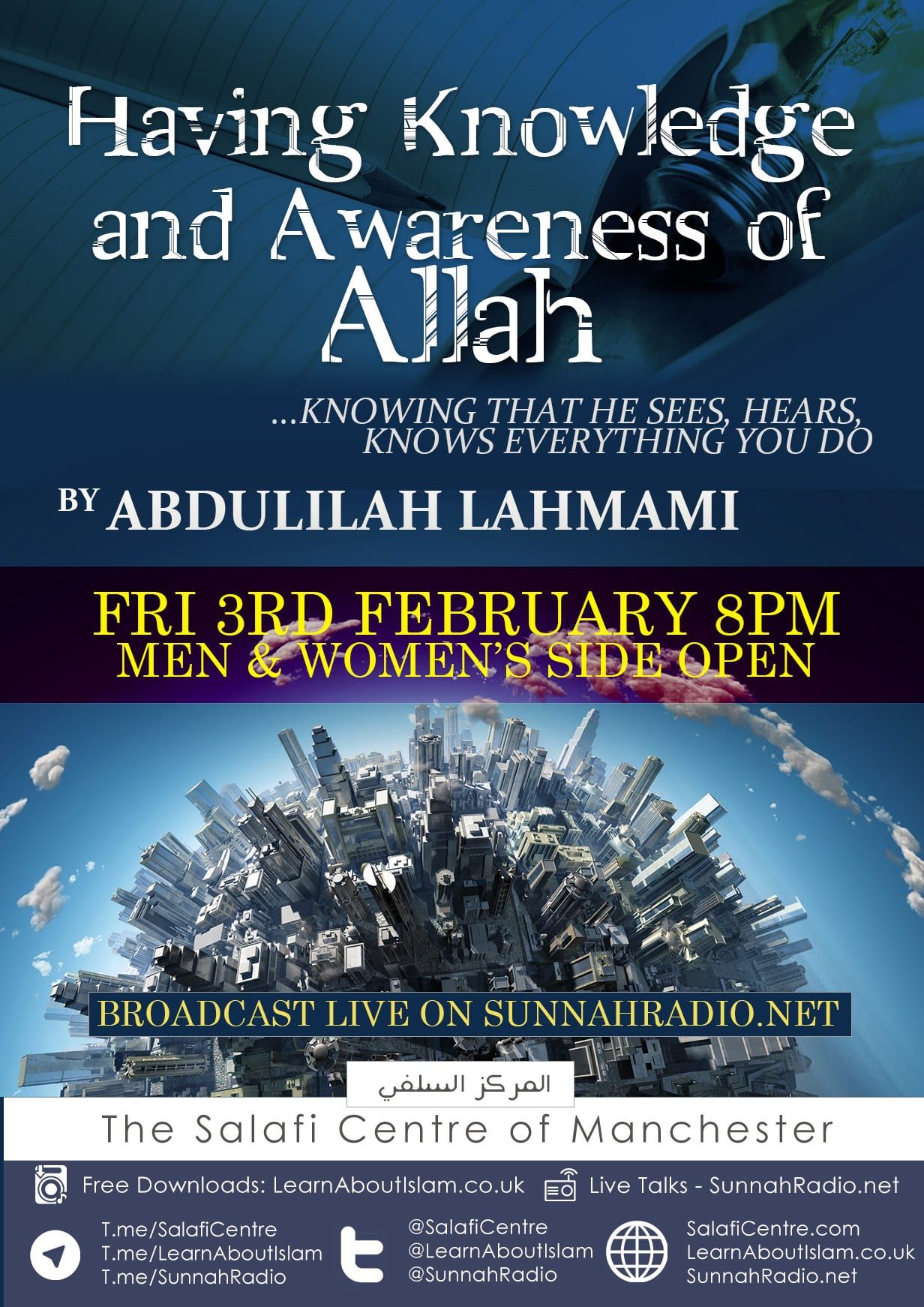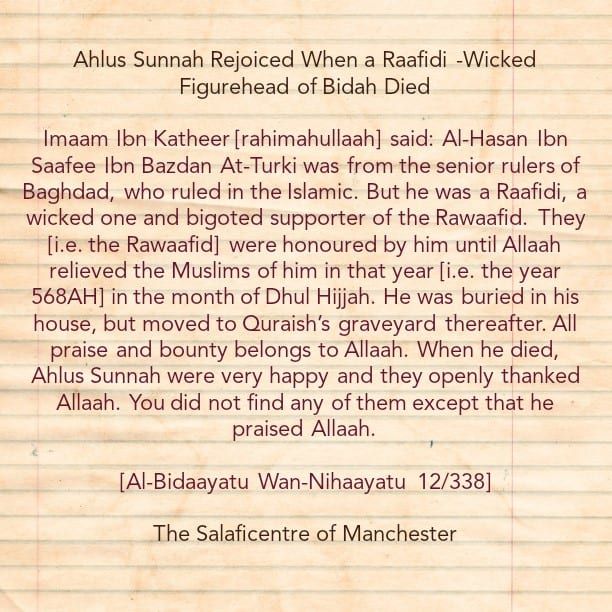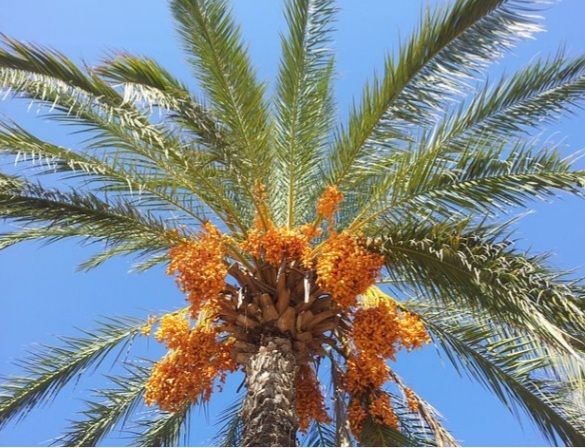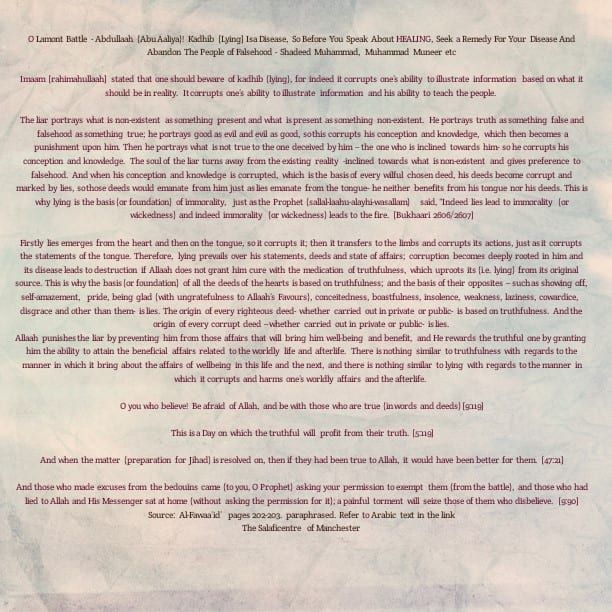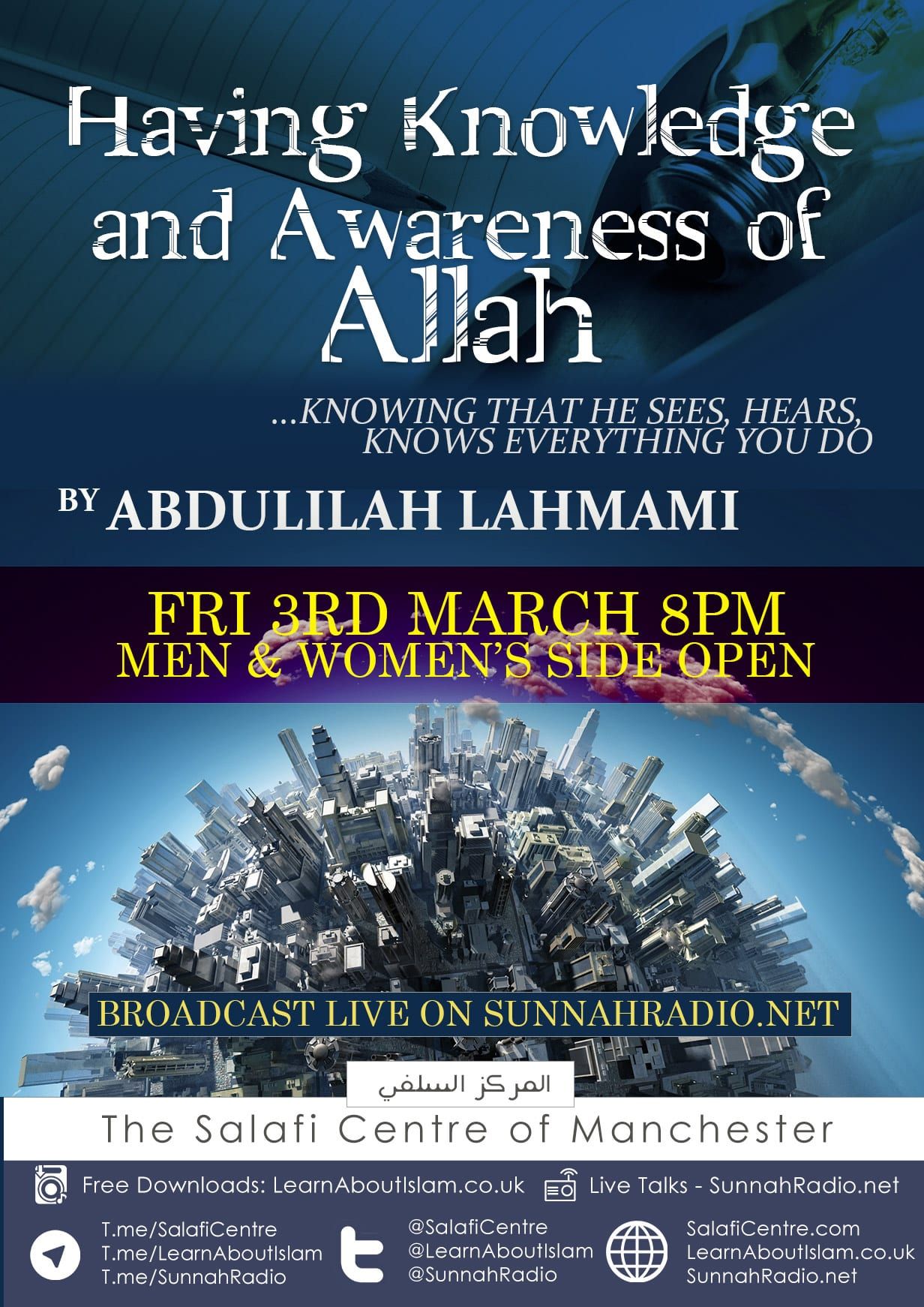Reminder: Another Liar among the Deceitful Graduates -[Naveed Ayaaz (@ Madeenah Dot Con/IslamNelson) -Friend and Companion of Obstinate Hizbiyyoon]
In The Name of Allaah, The Most Merciful, The Bestower of Mercy
Abu Hurairah (radiyallaahu-anhu) said, the Messenger (sallal-laahu-alayhi-wasallam) said:
”A person is upon the religion of his friend, so let each one of you look at whom he befriends.” [As-Saheehah: 97]
Ibn Mas’ood (radiyallaah-anhu) said:
”Indeed a person walks alongside and accompanies the one whom he loves and who is like him.” [Al-Ibaanah:2/476]
Abu Ad-dardaa (radiyallaahu-anhu) said:
”It is from the understanding of a person that he (chooses) those whom he walks with, whom he enters (visits) and whom he sits with.”[Al-Ibaanah: 2/477]
Indeed, the affair of Naveed Ayaaz is amazing! He openly accompanies the people of hizbiyyah and bidah (i.e. Abu Usamah); affiliates himself with the Masjid Committee (i.e. Masjid As-Sunnah- Cheethamhill) that defends obstinate Mubtadia (Maghraawi, Maribi, Halabi); affiliates himself with the affiliates of Ihyaa Turaath (i.e. Greenlane Admin) and promotes other obstinate figureheads of hizbiyyah (i.e. Suhaib Hasan) whose hizbiyyah is well known to the Salafiyyoon of the West; however Naveed wants us to ignore all these calamities and talk about side issues. Ustaadh Abu Mu’aadh Taqweem Aslam (may Allaah protect him) who has been refuting the calamities states: ‘’It is perplexing as to how and why these individuals of IslamNelson continue to make attempt after attempt at justifying themselves.’’ So we say: Indeed Ustaadh, this is same attitude of the hizbiyyoon in general! They openly proclaim their corrupt alliances and seek false justifications, even though the verdicts of Ahlul Ilm and the reality of the affair belies the corrupt stances of the hizbiyyoon. Therefore, we ask Naveed to repent to Allaah [by way of speech and action] from this destructive companionship and affiliation. He should free himself from the followers of Halabi, Maribi and Maghraawi.
The verdict of the scholars against Abul Fitan Al-Maribi
Al-Allaamah Saaleh Al-Fawzaan (may Allaah preserve him) said:
”Abandon this man (i.e. Abul Hasan) and call to the methodology of Ahlus Sunnah wal-Jamaa-ah.”
[Source: Siyaanatus-salafi Min Waswasati Wa-Talbeesaat Ali Al-Halabi: 533]
Al-Allaamah Abdullaah Al-Ghudayaan (rahimahullaah) said:
”This man (i.e. Abul Hasan al-Maribi) is subjected to trials and tribulations, (he is) insignificant and foolish.”
[Source: Siyaanatus salafi: page: 533]
Al-Allaamah Bin Yahyah An-Najmi (rahimahullaah) said:
”Indeed, it has been finally established with me that Abul Hasan is a Mubtadi (innova-tor).”
[Source: Siyaanatus-salafi: page: 533]
Imaam Muqbil Bin Haadee Al-Waadi-ee (rahimahullaah) said:
”Be cautious of Abul Hasan….I fear for the Dawah with regards to Abul Hasan.” He (rahimahullaah) also said: ”Abul Hasan is sly. He utilises cleverness and not what is from righteousness, purity and uprightness…..”
[Source: Siyaanatus Salafi page: 533]
Al-Allaamah Rabee Bin Hadee al-Madkhalee (may Allaah preserve him) said:
”The initial affair with regards to them (i.e. Al-Abul Hasan al-Maribi, Muhammad Hassaan and Abu Ishaaq Al-Huwayni) is that they are ikhwaanees, upon the nurturing of the ikhwaanees.”
[Source: Siyaanah: page:534]
Shaikh Muhammad Bin Haadee (may Allaah preserve him) said:
”Indeed, many of the salafi brothers are aware of the condition of this man (i.e. Abul Hasan Al-Maribi); rather at present he is with the groups of illegal partisanship, and he says, he says and he says of that which is recorded in his cassettes. And he used to reject these (affairs) the day before, but today he came with them with his own tongue. We ask Allaah for wellbeing and safety. He now speaks with the affairs he used to reject from the callers to illegal partisanship the day before….until the Shaikh said: ‘’I know him (i.e. Abul Hasan), he does not feel ashamed of telling lies.”
[Source: Siyaanatus salafi: page: 535]
Al-Allaamah Ubaid Bin Abdillaah Al-Jaabiriy (may Allaah preserve him) said:
”This man (i.e. Abul Hasan) is an ikhwaanee…”
[Source: Siyaanatus salafi: page:534]
Verdict of Shaikh Ahmad An-Najmi Against Abu Usaamah-The Greenlane Khateeb of desires
Sheikh Ahmad An-Najmi was asked on the 9th of January, 2003 the following question concerning Abu Usaamah Adh-Dhahabi:
Question:
“O Shaykh Ahmad we have with us in America a man called abu usaamah who is considered to be from the Du’aat, he aids and supports abu hasan and he calls some noble salafi brothers gulaat (extremists), muqallidah (blind followers),and muhqiboon (the people whose religion is the religion of the one they blindly follow), so what is the legislated position from this man and how should we deal with him?”
Answer: “Your position on him is the same as your position on the people of innovation. Turn away from him and abandon him.” [Source: http://www.salafitalk.net/st/viewmessages.cfm?Forum=6&Topic=1136]
Therefore, it is incumbent upon Naveed to stop fishing in the murky waters and honestly free himself from the hizbiyyoon and their obstinate followers @ Greenlane, Masjid As-Sunnah (Cheethamhill) and elsewhere. As his other calamities besides the ones related to Manhaj, see links:
http://salaficentre.com/2014/03/abul-abbas-naveed-ayaaz-lying-exposed-testimony-1/
http://salaficentre.com/2014/03/abul-abbas-naveed-ayaaz-lying-exposed-testimony-2-the-neighbour/
We ask Allaah (The Most High) to protect our hearts from evil desires and lies. Aameen



